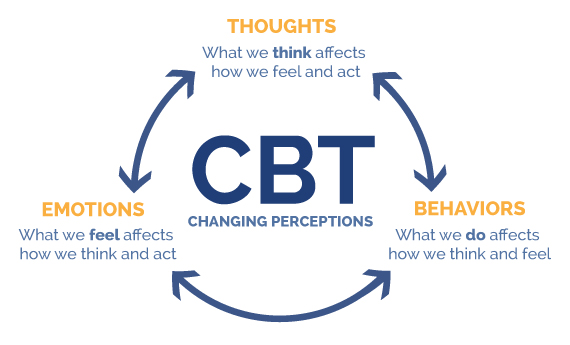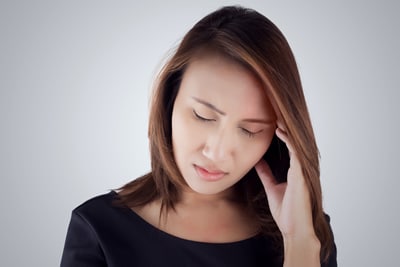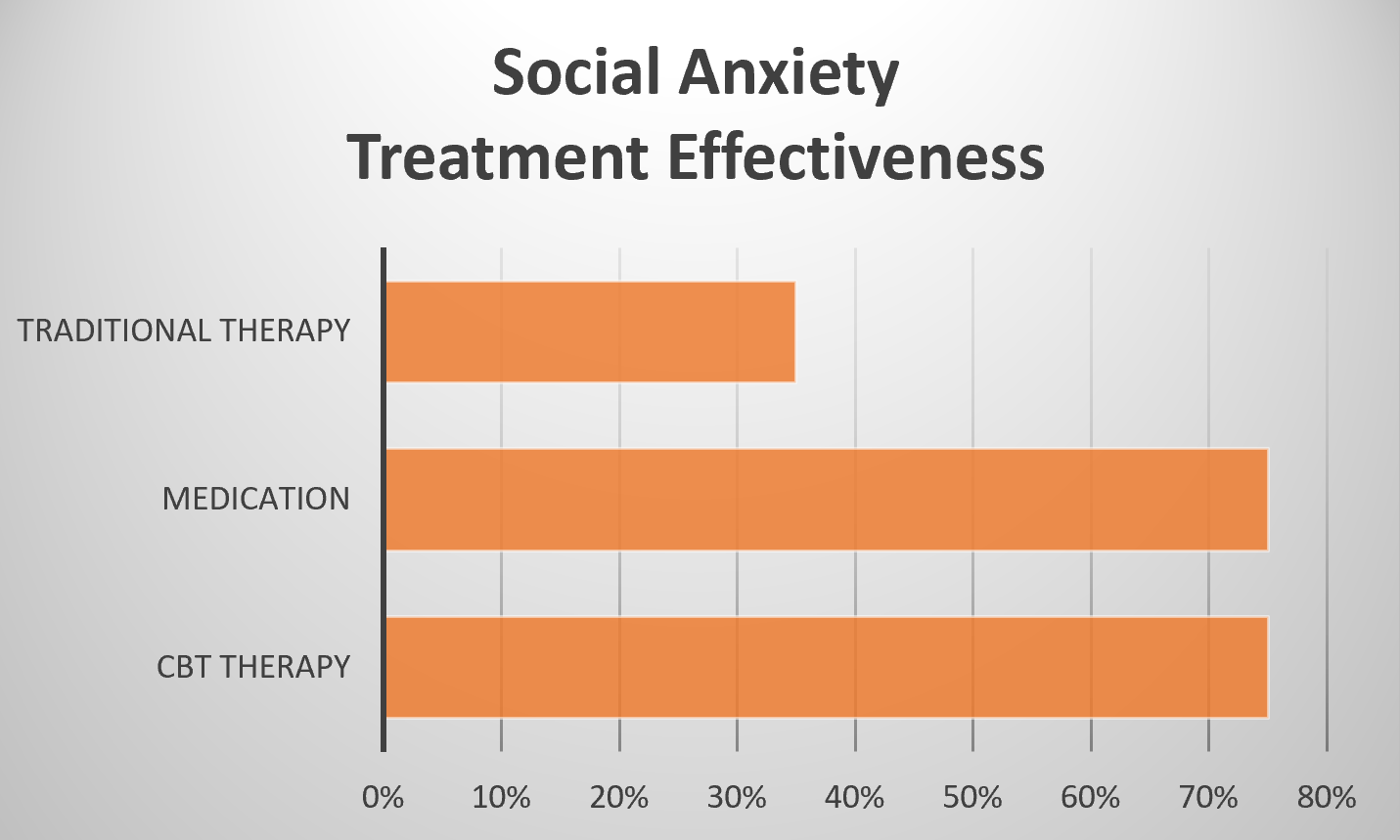Evidence-based counselling for anxiety with empathetic guidance
Discovering Different Techniques in Coaching for Anxiousness Disorder for Enduring Adjustment
When dealing with stress and anxiety disorders, it's necessary to check out a selection of counseling strategies. Each technique provides special insights and tools to aid you manage your signs and symptoms properly. You may discover that integrating methods can yield the most effective results. Recognizing the subtleties of these methods is crucial to promoting long lasting modification. What if the right mix could launch a new level of psychological wellness for you?
Comprehending Anxiety Disorders: A Quick Review
Anxiety disorders, which influence numerous individuals worldwide, can considerably influence daily life. You could experience overwhelming sensations of worry or stress that seem uncontrollable. These sensations can cause physical signs like a racing heart, sweating, or perhaps lightheadedness. Common types of anxiousness conditions include generalized anxiousness problem, panic condition, and social stress and anxiety disorder. Each has distinct signs, however they all share a tendency to disrupt your routine and relationships.Understanding the origin creates of your stress and anxiety is important. It could come from genetics, mind chemistry, or life experiences. Acknowledging your triggers can aid you handle your feedbacks better. It's important to keep in mind that you're not the only one in this struggle. Many individuals deal with comparable difficulties, and looking for assistance is a solid step towards feeling better. By finding out about anxiety conditions, you're currently on the path to understanding and handling your problem much more effectively.
Cognitive-Behavioral Therapy: Testing Negative Idea Patterns
In Cognitive-Behavioral Therapy, you'll begin by recognizing the unfavorable thought triggers that add to your anxiety. You'll work on changing them with even more positive alternatives as soon as you acknowledge these ideas. Together, you'll construct efficient coping approaches to help handle your stress and anxiety in everyday circumstances.
Identifying Adverse Thought Triggers

Acknowledging the certain triggers behind your adverse ideas can be essential in managing anxiety when you encounter moments of distress. Start by taking note of situations that provoke sensations of concern or concern. Is it a congested space, an approaching due date, or a conversation with certain individuals? Write these instances in a journal. This will help you recognize patterns in your thinking. Notice physical experiences that accompany your adverse ideas, like an auto racing heart or tightness in your chest. By determining these triggers, you get insight into what's fueling your anxiousness. Recognizing these links is the initial step in challenging those thoughts and ultimately restoring control over your emotional actions.
Replacing Thoughts With Positives
Testing adverse idea patterns is an essential step in transforming your way of thinking and minimizing anxiousness. You may commonly find yourself trapped in cycles of self-doubt or disastrous reasoning. As opposed to allowing these thoughts determine your sensations, method changing them with favorable affirmations or reasonable options. When you assume, "I can not handle this," shift it to, "I can take care of obstacles one action at a time." This basic change can greatly impact your mood. Routinely determining and countering these negative ideas helps produce a much healthier inner discussion. Remember, it requires time and initiative, however constantly practicing this method can bring about enduring change, equipping you to face stress and anxiety with restored confidence and resilience.
Building Coping Techniques With Each Other
Changing adverse ideas is just the beginning of handling anxiousness effectively. To create long-term adjustment, you require to develop coping techniques that equip you. Cognitive-Behavioral Treatment (CBT) assists you identify and challenge those unhelpful thought patterns. Together, you and your therapist can discover exactly how these thoughts impact your sensations and behaviors.Start by creating functional methods, like journaling or mindfulness exercises, that permit you to face stress and anxiety head-on. When you face your fears progressively, you'll discover to respond differently.

Mindfulness and Acceptance-Based Approaches: Cultivating Present-Moment Recognition
As you browse the complexities of anxiety, incorporating mindfulness and acceptance-based approaches can considerably boost your capacity to cultivate present-moment recognition. By concentrating on the present moment, you'll discover that you can observe your thoughts and sensations without judgment (Counseling services for anxiety). This practice aids you acknowledge your stress and anxiety without feeling bewildered by it.Engaging in mindfulness exercises, such as deep breathing, body scans, or guided reflections, allows you to ground on your own in your existing experience. Acceptance-based methods encourage you to welcome your feelings as opposed to deal with against them. When you accept your sensations, they shed their power over you.Incorporating these techniques into your everyday regimen can change exactly how you reply to anxiety. You'll create durability and find out to browse demanding situations with better convenience. Ultimately, growing present-moment understanding lays the foundation for long lasting adjustment, encouraging you to lead a more fulfilling life
Exposure Therapy: Facing Concerns Gradually
Exposure treatment aids you challenge your anxieties in a steady method, making it much less frustrating. You'll find out methods to deal with anxiety-provoking scenarios detailed, while likewise developing coping approaches to manage your reactions. This method encourages you to take control and reduce anxiety in time.
Progressive Exposure Methods

When encountering anxiousness, progressively facing your worries can be an effective means to restore control. This technique, referred to as progressive exposure, involves gradually subjecting on your own to the circumstances or things that activate your anxiety. Beginning with less daunting scenarios and progressively work your means as much as even more challenging ones. If you're terrified of public talking, you might start by talking in front of a mirror, then advance to sharing ideas with a good friend, and eventually attend to a tiny group. Each action helps desensitize you to the anxiety, developing your self-confidence with time. Bear in mind, it's vital to pace yourself and commemorate little success as you relocate through this procedure, reinforcing your capacity to manage anxiousness efficiently.
Building Coping Methods
Structure effective coping techniques is vital for managing stress and anxiety, especially as you challenge your fears slowly - Counseling services for anxiety. One effective approach is exposure therapy, where you begin by encountering your concerns in a regulated fashion. Start with much less frightening scenarios and slowly function your means up to more challenging circumstances. This steady direct exposure helps desensitize you to anxiety sets off, making them less overwhelming.Incorporate relaxation techniques, such as deep breathing or mindfulness, to calm your mind during direct exposure. Track your progress, commemorating small victories in the process to boost your confidence. Keep in mind, it's fine to take your time; the goal isn't excellence yet consistent enhancement. By building these methods, you'll empower yourself to navigate stress and anxiety and accept life extra totally
Psychodynamic Therapy: Uncovering Origin of Stress And Anxiety
Psychodynamic therapy discovers the subconscious mind, revealing the origin of your stress and anxiety. By examining your ideas, feelings, and past experiences, this strategy assists you discover underlying conflicts and unresolved concerns that might add to your existing anxiety. You'll work with a specialist to investigate click to find out more youth experiences, partnerships, and psychological patterns that shape your reactions today.As you get understanding right into these deeper layers of your mind, you'll start to recognize just how past occasions influence your existing habits. This understanding can result in catharsis, enabling you to process emotions you might have suppressed.Through the therapeutic connection, you can additionally recognize protection systems that might have established over time, using a clearer course to alter. Inevitably, psychodynamic therapy furnishes you with the devices to address your anxiousness at its core, promoting enduring transformation in your psychological health.
All Natural and integrative Techniques: Incorporating Methods for Greater Efficacy
Integrating various healing strategies can boost your journey toward managing anxiety better. By get more integrating elements from cognitive-behavioral treatment, mindfulness methods, and alternative methods, you can develop a tailored method that addresses your one-of-a-kind requirements. As an example, you could make use of cognitive-behavioral methods to test adverse idea patterns while including mindfulness exercises to ground on your own in the here and now moment.Additionally, exploring holistic practices such as yoga or meditation can promote leisure and lower anxiety signs. This blend allows you to develop greater self-awareness and resilience.Experimenting with these diverse methods can help you uncover what reverberates most with you. Bear in mind, it has to do with discovering a synergy that works, rather than adhering to a solitary strategy. This integrative approach not just uses instant relief yet also promotes long-term abilities for taking care of anxiousness, encouraging you to redeem control over your life.
The Function of Support Equipments: Structure Resilience With Link
While it might seem that managing anxiousness is a singular journey, having a strong support system can play an essential role in your durability. Bordering on your own with understanding pals, family members, or assistance teams develops a secure area where you can freely share your sensations and experiences. You remind on your own that you're not alone in this struggle.These relationships provide encouragement and can offer practical coping methods that have worked for others when you attach with others. It's likewise a possibility to obtain point of view; buddies can aid you see situations in different ways, minimizing feelings of isolation.Moreover, emotional assistance cultivates a sense of belonging, which can significantly relieve anxiety signs and symptoms. By leaning on your support group, you can develop strength and take on challenges much more properly. Remember, connecting for help signifies toughness, and it can make all the distinction in your journey toward taking care of anxiousness.
Frequently Asked Concerns
What Are the Usual Symptoms of Stress And Anxiety Problems?
You could experience restlessness, exhaustion, difficulty focusing, impatience, muscle tension, and rest disruptions. click now Physical signs and symptoms can include fast heart beat, sweating, and trembling. Recognizing these signs early can help you look for suitable assistance and therapy.
For How Long Does Therapy Typically Last for Stress And Anxiety Problems?
Treatment for anxiousness conditions normally lasts anywhere from a couple of weeks to several months. It really depends on your private demands, progression, and the strategies your specialist makes use of to aid you manage your stress and anxiety properly.
Can Drug Be Made Use Of Together With Therapy for Anxiety?
Yes, drug can most definitely be utilized alongside treatment for anxiousness. Incorporating both techniques typically improves treatment performance, assisting you manage signs and symptoms while discovering underlying problems via therapy (Counseling services for anxiety). Always consult your medical care provider for personalized suggestions
Are There Self-Help Strategies for Taking Care Of Stress And Anxiety?
Yes, there are several self-help approaches for handling anxiety. You can practice mindfulness, involve in normal workout, keep a balanced diet, establish a routine, and use deep breathing methods to help lower stress and anxiety signs and symptoms successfully.
How Do I Know if I Need Specialist Aid for Anxiety?
